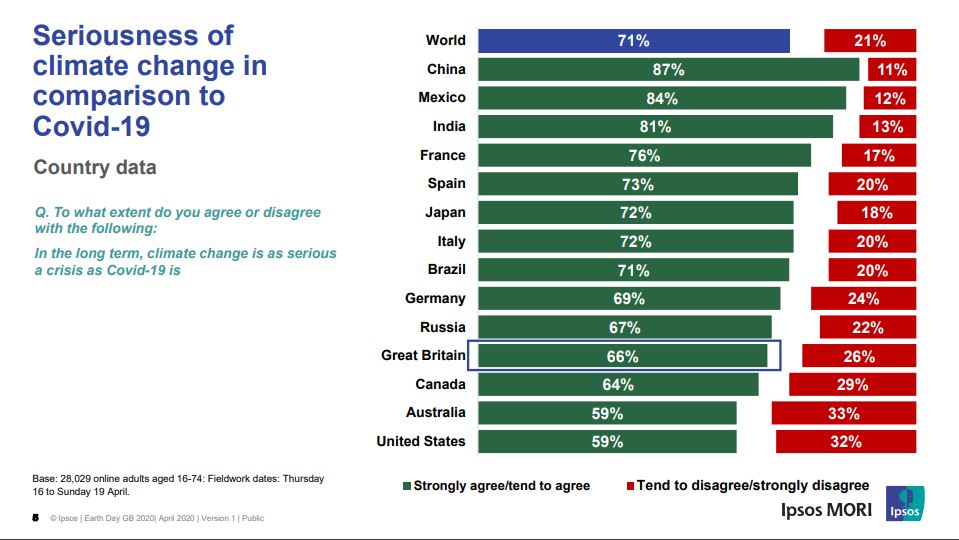A new poll from Ipsos, a multinational market research and a consulting firm, shows that a large majority of those surveyed worldwide consider the climate crisis equally as concerning as the COVID-19 pandemic crisis. The firm polled over 28,000 from across 29 nations for their Earth Day 2020 survey and found that 71% share this view, either “tending to agree” or “strongly agreeing.”
Respondents in China were particularly warm to this idea, with 87% agree. Mexico and India also both had more than 80% of their respondents agreeing. Even the United States with a climate-denying president in office registered 59% who agreed with this claim.
The survey was conducted among people aged 16 – 74 in Argentina, Australia, Belgium, Brazil, Canada, China, Chile, Colombia, France, Great Britain, Germany, Hungary, India, Italy, Japan, Malaysia, Mexico, Netherlands, New Zealand, Peru, Poland, Russia, Saudi Arabia, South Africa, South Korea, Spain, Sweden, Turkey, and the United States of America, with either roughly 1000 or 500 citizens polled from each country. According to Ipsos, their survey has credibility interval with a poll of 1,000 accurate to +/- 3.1 percentage points and of 500 accurate to +/- 4.5 percentage points.
I find surveys like this both give me hope and generate a healthy amount of skepticism in me. I don’t love the framing of this question. For example, far-right conservatives who are not at all worried about COVID-19 or the climate crisis could answer that they are equally as concerned, in that they are not at all concerned. Further, how does Ipsos ensure that it’s methods do not overly favor those demographics that tend to be more climate conscious?
However, despite these quibbles, the data is pretty overwhelming. Even amid an urgent international crisis, people are still looking to the future and preparing for the next major crisis. It is a testament not only to the effectiveness of climate awareness campaigns over the last decade or two, but also to humanity’s increasing capacity to hold concern for both long-term (or at least mid-term) and immediate threats.



